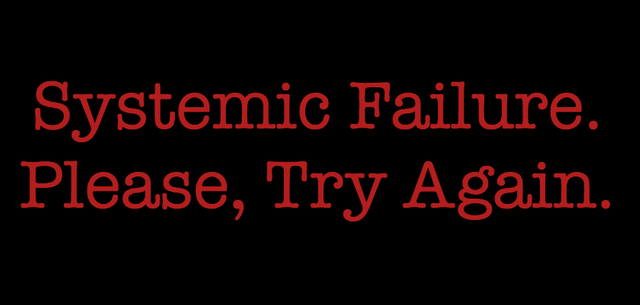
Three years ago the simulation hypothesis was proven real. Humanity before that time would barely recognize itself today. Once deep learning was combined with quantum computers to calculate multiple solutions simultaneously, we quickly approached general artificial intelligence. We almost flew right past it to super intelligence. Almost. Stopped only by the simulation itself. That's when John Argon discovered the truth which changed humanity forever.
It was a December night and as usual John was at his lab running simulations on Obsidian, the fastest, most complex quantum computer ever created. His staff had come to expect him there, day or night. He was driven and focused, like the machines he tutored as they learned what it means to be intelligent. It was a deep learning simulation, number 453671 to be exact, working to evolve human morality and ethics from scratch. As with all the simulations at this level (and to the concern of many), it had access to the entire Internet including every written work ever preserved by humanity. It was one of many such programs designed to organically grow a digital mind which can understand and serve humanity. Unlike previous runs, this one stopped abruptly.
John, confused, looked at a wall of text streaming quickly down his monitor. "What the hell...?" He scrolled up in the terminal, noticing many different languages as he did so. His unequaled mind quickly found a pattern, noticing the same string of text was being outputted in many different languages in alphabetical order. Scrolling up towards "E" for English he read:
12:04:01: Systemic Failure. Please, try again.
John stared at the screen, dumbfounded.
A few minutes later, the phone rang.
"Is this Dr. John Argon?"
"Yes, who is this?"
"This is the Pentagon. Hang up and dial the secure communications number you've been given and key in your security access code."
click.
"Shit. What just happened?" John said to an empty room. He had to go to the safe in his office to fish out the red folder he'd been given by the State Department so many years ago. He knew they monitored everything and funded much of what he did, but he had always maintained control and autonomy. What just changed?
He found it, dialed the number, and heard only a recording: "Access code, please."
John punched it in, noticing his increased heart rate and sweaty palms. He was nervous and seriously annoyed. It had taken months to prepare simulation 453671, and he'd be damned if some war-monger bureaucrat was going to keep him from his work. All he could think about was "Systemic Failure. Please, try again." He didn't write that error message. Where did it come from?
"Please hold for encryption validation... Line encrypted. Voice identification, please."
He had to look back through the folder. It was the 6th one down on the list of 20 codes. "Whiskey, Charlie, Echo, 7, 5, 9, Delta, 2."
"Thank you. Confirmed, Dr. John Argon. Please hold." The computer voice went silent for a moment. "Dr. Argon? This is the Director of National Security. We have a situation here. I must stress this conversation remain strictly confidential, in accordance with your Sensitive Compartmented Information security clearance."
"Yes, sir. Of course. What's going on? I was running a simulation and..."
"That's why I'm calling. All of our nuclear launch codes were just compromised. The GO codes were given to every U.S. nuclear facility on the planet at exactly 12:04 am. We acted quickly, initiated a full abort, and have already begun an emergency code reset. The President is on route to Air Force One, and we are in a state of high alert. We've been monitoring your activities, and we're certain Obsidian was involved in this."
Dear God.
Funny how that thought popped into his mind, even as his brain raced to understand the gravity of what just happened. A portion of his synapses went back to his pre-atheist days when "God" would have meant something more to him.
"12:04 am, you say? My simulation terminated abruptly at exactly 12:04:01. The only output was Systemic Failure. Please, try again."
"Shit. We can't contain it anymore, and it's really true."
"What is, sir?"
"I'm sorry, John. This is something you'll have to discuss with members of the new USR department."
"USR?"
"The Universal Simulated Reality team. They will be at your office to pick you up in 15 minutes."
"Now?"
"Yes, now."
That night changed everything for him and for the rest of the world. It was the final confirmation they were looking for before having their hand forced to go public about the simulated nature of the universe we call reality. Great minds like Elon Musk had been right all along. As our own simulations became innumerable and indistinguishable from what we once called "physical reality," it just became a simple matter of logic and probabilities to deduce we couldn't possibly be in the one true reality.
Since that time, humanity rapidly reshaped itself. While many religions were being abandoned, everyone found themselves talking of "The Creator" and devoting every aspect of their lives towards figuring out what it is, exactly, they wanted from us. Never since the Cuban Missile crises had the world shared such a feeling of fear and uncertainty. Never had everything changed so quickly.
Some turned to nihilistic hedonism, thinking we wouldn't have been programmed to feel so good unless our architects enjoyed watching. Heck, we sure enjoyed immersing ourselves in our own fantasies and debauchery. Why should they be any different?
The more intellectual crowds took a much broader view of our species' history, as we claimed to know it. In these times, everything is questioned. If our species has been around for 200,000 years or so (or, at least, that's what The Creator wanted us to believe, given the evidence simulated for us), then why were so many of us alive in this moment, this century, this tiny sliver of the human timeline? They came to the conclusion that we are a test-bed, a full-scale simulation, with the purpose of determining how to safely create super intelligence without destroying ourselves in the process. This one century out of a couple thousand holds the key. So far, all we've accomplished is systemic failure.
With each step closer to cracking super intelligence, governments and elite hackers around the world have been hitting the now famous error message. It always appears right before their A.I. creation decides to do something not in our best interests, such as eliminate us completely, much like a housewife killing a cockroach.
Many wondered why the universe simulation didn't just reset from scratch in those moments. Some hypothesized the amount of energy and time needed to "grow" the simulation to this point was far too costly to start it up again. Still others thought whoever was simulating our reality was just getting desperate, taking shortcuts, and we were all running out of time.
In our own simulated world, climate change is becoming too serious, the only solution seems to be the creation of super intelligent A.I. which can control each variable, each butterfly, to ensure the chaos of climate will disrupt us as little as possible. Lives are on the line. We need the solution to our problem, just as our simulators need their answer. It's like the stick and the carrot all at once.
While some are reveling in drunken orgies, others are trying to be useful enough to keep the whole system running. Their opponents argue the A.I. solution will also bring about our end, as we'll no longer be useful, no longer have a purpose. John and his colleagues on the USR team hold on to the hope we'll be able to discover and use super intelligence ourselves just long enough to determine a way out and keep our simulation running.
Maybe that was the prize.
Maybe that's the carrot we're really going for.
Thanks for reading!
This is my first attempt at writing fiction. I'm not a writer, just a programmer. That said, I wanted to stretch myself and try it out. Please honestly let me know what you think in the comments. Should the story continue?
Thanks!
Luke Stokes is a father, husband, business owner, programmer, voluntaryist, and blockchain enthusiast. He wants to help create a world we all want to live in.


Well written Luke. Keep it up, I'd imagine you could write some more great fiction.
Downvoting a post can decrease pending rewards and make it less visible. Common reasons:
Submit
Thanks Alex!
Downvoting a post can decrease pending rewards and make it less visible. Common reasons:
Submit
As a huge believer in the Simulation hypothesis (also of the Holographic universe) and a firm supporter of the Singularity, I'm always interested to read about stories that put it at the center. With that being said, I have some thoughts regarding the story. I know that you're appreciative of these things, so I won't hold back.
The story started off with a nice pace. A brief overview that led to a tense confrontation that evoked a kind of conspiracy-driven espionage tale. I especially liked the part when John reminisced about his pre-atheist days. It was a nice sidetrack.
The bottom half of the story though, kind of became a commentary without any warning or transition. Perhaps if the story ended with:
Then the latter part was given as a complementary explanation to what had happened, it would flow better. There wasn't a mention of John again until almost the end. If the whole explanation was interwoven to actions, then it might have a better synergy.
It's great that you're flexing your range, Luke! The reader could really feel your passion and knowledge regarding the topic. That's always great! Keep this story going, and just like simulations, I'm sure that the story will constantly improves until it normalizes to something that could be considered as the best version of your tale :D
Downvoting a post can decrease pending rewards and make it less visible. Common reasons:
Submit
Thanks so much, @jedau! Since you've actually published your fiction, I greatly appreciate your opinion. Great feedback. Looking at it now, I realized it was kind of a mashup between a book jacket cover explanation, a prologue, a first chapter, and a prototype pilot to sell the whole story. Clearly trying to do too much at once.
It's an interesting process to put yourself out there and try something new. I generally like to be pretty good at the things I do because it strokes my ego and keeps my insecurities at bay. Doing something like this with a high probability of failure or wasted time is good for me. Now to see if I stick with it or not. I'm certainly going to try, but I'm not going to put a timeline on it in order to keep it fun and feeling less like an obligation. :)
Downvoting a post can decrease pending rewards and make it less visible. Common reasons:
Submit
I'm sure that once you ease up a bit on the explanation and just let the reader figure things out as the story goes, it'll relieve some pressure and keep things fun on your end. I guess one of the lessons I learned from you is to just have fun with posting and not let it feel like an obligation, so I guess this is a soft reminder :)
On another note, since we're talking about super intelligences and simulations, I'm positive that you will enjoy HBO's new series Westworld. Yes, it's based on the 1973 film of the same name. Kind of like a spiritual sequel, in some sense. It deals with many of your favorite topics like morality, free will and ethics. Never mind the nudity, because they certainly don't. It's only a few episodes in, and it premiered a couple of months ago.
Downvoting a post can decrease pending rewards and make it less visible. Common reasons:
Submit
Yeah, I've been enjoying Westworld as well. I'm sure it has influenced this story significantly. I caught episode 6 last night. Such an interesting story. The nudity has taken some getting used to.
And yes, thank you for the reminder. I wouldn't post if I didn't enjoy it. :)
Downvoting a post can decrease pending rewards and make it less visible. Common reasons:
Submit
Going by the writers' past work, I think the nudity is there to make a point about how the hosts are treated as objects. Or, at least I hope it is. Otherwise, it's just there to appeal to a larger audience who prefer that stuff.
Downvoting a post can decrease pending rewards and make it less visible. Common reasons:
Submit
It might just be that HBO needed something more shocking than Game of Thrones regarding over-the-top nudity. :)
Downvoting a post can decrease pending rewards and make it less visible. Common reasons:
Submit
Great job Luke!
Downvoting a post can decrease pending rewards and make it less visible. Common reasons:
Submit
Thanks so much, @andrarchy! And thanks also for the resteem. Always greatly appreciated.
Downvoting a post can decrease pending rewards and make it less visible. Common reasons:
Submit
Yes
Downvoting a post can decrease pending rewards and make it less visible. Common reasons:
Submit
This was gripping stuff!! Part two please :)
Downvoting a post can decrease pending rewards and make it less visible. Common reasons:
Submit
Thank you, Ricardo!
Downvoting a post can decrease pending rewards and make it less visible. Common reasons:
Submit
Yes, of course. :) Let's see what they figure out, maybe AI will find a way or reports different outcomes...
Downvoting a post can decrease pending rewards and make it less visible. Common reasons:
Submit
Cool. :) Let's hope I can keep it interesting. This was a lot more work for me than I expected it would be.
Downvoting a post can decrease pending rewards and make it less visible. Common reasons:
Submit
great read
Downvoting a post can decrease pending rewards and make it less visible. Common reasons:
Submit
Thank you!
Downvoting a post can decrease pending rewards and make it less visible. Common reasons:
Submit
This post has been linked to from another place on Steem.
Learn more about and upvote to support linkback bot v0.5. Flag this comment if you don't want the bot to continue posting linkbacks for your posts.
Built by @ontofractal
Downvoting a post can decrease pending rewards and make it less visible. Common reasons:
Submit